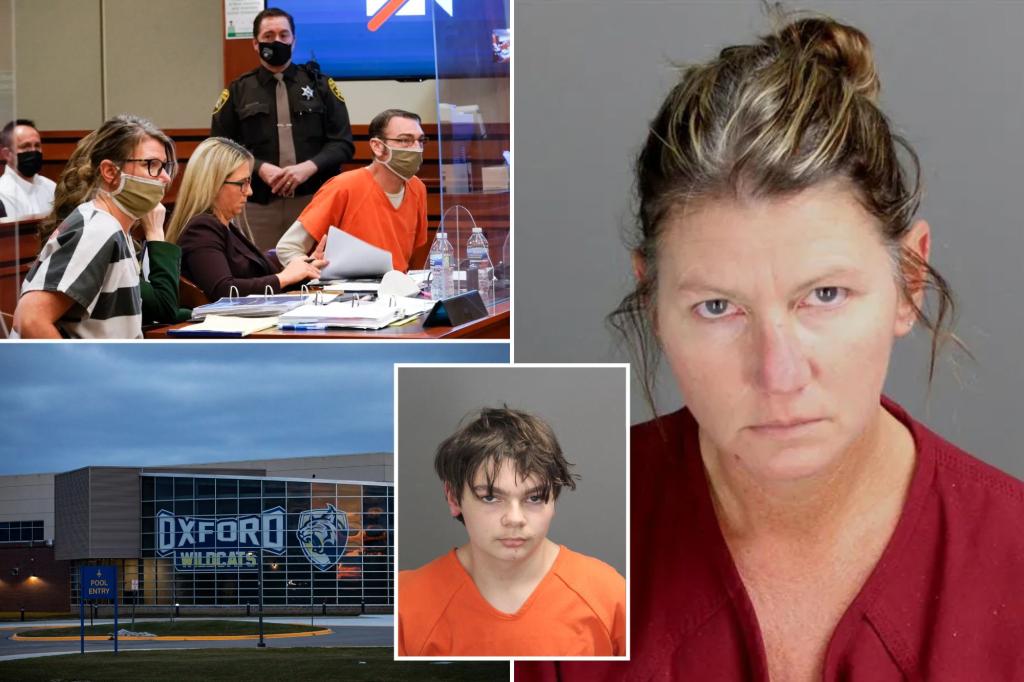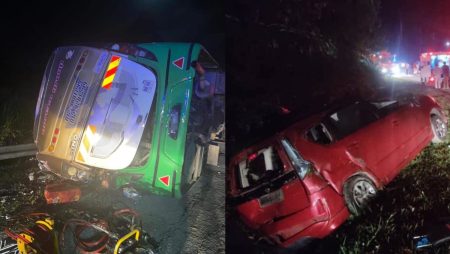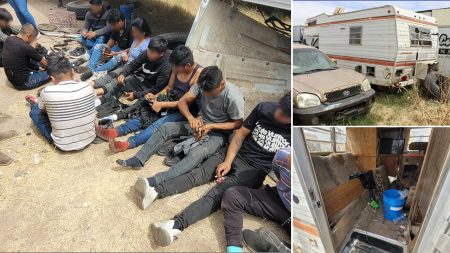Paragraph 1: The Crumbleys’ Conviction and Jennifer’s Appeal for Release
Jennifer Crumbley, mother of the Oxford High School shooter, Ethan Crumbley, has filed a motion seeking release from prison pending her appeal. Convicted on four counts of involuntary manslaughter for her role in the tragic events of November 30, 2021, Jennifer Crumbley argues that her continued incarceration while her appeal process unfolds is unjust. Her attorney, Michael Deszi, contends that the charges against her are tenuous and that she poses no flight risk or danger to the public. He further criticizes the prosecution’s decision to charge her with involuntary manslaughter, asserting that it represents an overreach given that her son, who was charged as an adult, was the one who committed the intentional criminal acts.
Paragraph 2: The Basis of Jennifer Crumbley’s Appeal and the Prosecution’s Response
Deszi argues that the protracted nature of the appeals process, which he anticipates could take years, makes Jennifer Crumbley’s continued imprisonment unfair, especially considering she has already served over three years. He questions the legitimacy of her lengthy detention while the Michigan Supreme Court reviews her case. However, Oakland County Chief Assistant Prosecutor David Williams maintains that Jennifer Crumbley’s imprisonment is justified based on her own actions and inactions leading up to the shooting, and not solely on the actions of her son. He emphasizes that a jury carefully considered the evidence and found her guilty, resulting in a 10-15 year prison sentence.
Paragraph 3: The Oxford High School Shooting and its Aftermath
The tragic shooting at Oxford High School on November 30, 2021, claimed the lives of four students: Tate Myre, Justin Shilling, Hana St. Juliana, and Madisyn Baldwin. Seven others were injured. Ethan Crumbley, then 15 years old, was identified as the shooter and subsequently charged as an adult. The case against Jennifer and James Crumbley marked a precedent-setting moment, as they became the first parents in the United States to be convicted for a mass shooting perpetrated by their child. The convictions sparked significant debate and raised complex questions about parental responsibility in such tragic circumstances.
Paragraph 4: The Evidence Presented Against Jennifer Crumbley and Her Sentencing
The trial against Jennifer Crumbley revealed disturbing evidence suggesting years of neglect towards her son’s mental health struggles and concerning behavior. Testimony and evidence presented in court painted a picture of a troubled teenager whose cries for help were allegedly ignored by his parents. The prosecution argued that Jennifer Crumbley’s failure to address her son’s deteriorating mental state and access to firearms contributed to the tragic outcome. The court ultimately sentenced Jennifer Crumbley to 10-15 years in prison, reflecting the gravity of the charges and the devastating consequences of her actions.
Paragraph 5: The Crumbleys’ Actions on the Day of the Shooting and Subsequent Legal Challenges
On the day of the shooting, both Jennifer and James Crumbley were summoned to Oxford High School after Ethan drew disturbing images on a worksheet. School administrators met with the parents and expressed concern over Ethan’s behavior. Despite the alarming nature of the situation, the Crumbleys reportedly left the school shortly afterward and returned to work without taking further action to secure their son or address his mental health. This inaction became a key element of the prosecution’s case. Following their convictions, both Jennifer and James Crumbley have sought to appeal their sentences, with Jennifer recently requesting a new trial.
Paragraph 6: The Legal Arguments and the Broader Implications of the Case
The Crumbley case has raised complex legal questions about the scope of parental responsibility and the extent to which parents can be held accountable for the criminal actions of their children. Jennifer Crumbley’s appeal centers on the argument that the charges against her are overly broad and that she should not be held criminally responsible for her son’s independent actions. The prosecution, however, contends that her negligence and failure to intervene played a significant role in the tragedy. The outcome of the appeal will have far-reaching implications, potentially setting legal precedents for future cases involving parental accountability in similar circumstances. The case continues to fuel public debate about gun control, mental health support, and the responsibilities of parents in preventing such tragedies.










